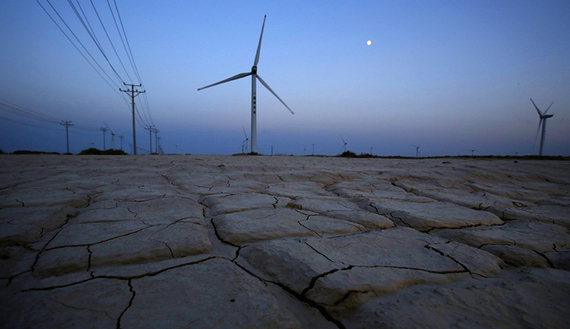The European Union (EU) finance ministers confirmed EU’s commitment on Tuesday to scale up climate finance to help the poorest and most vulnerable countries to climate change in the years ahead after a meeting here.
This EU’s ministerial meeting was held before the international climate change conference to be held later this month in Paris. Climate finance is expected to be one of the difficult issues to agree on at that crucial conference, reported Xinhua.
“The EU has today confirmed its position as the global leader in climate finance. Ahead of the crucial COP21, we are delivering significant financial support for developing countries and will continue to do so,” said Pierre Moscovici, Commissioner for Economic and Financial Affairs, Taxation and Customs.
The European Commission said climate finance needs to be supported by enabling environments such as appropriate national development plans, climate strategies, policies, instruments, mechanisms and regulatory frameworks to facilitate private sector action.
According to the EU official data, the EU and its Member States provided 14.5 billion euros ($15.55 billion) in funding in 2014 to help the poorest and most vulnerable countries reduce greenhouse gas emissions and adapt to the consequences of climate change.
“This is a further significant increase which shows Europe’s determination to contribute its fair share of the $100 billion goal set in 2009 for annual finance flows from developed to developing countries by 2020,” the EU said in a statement.
US wants climate as part of foreign policy
US Secretary of State John Kerry on Tuesday said that he will convene a task force of senior government officials to determine how best to integrate climate and security analysis into overall foreign policy planning and priorities.
In a speech on climate policy at the Old Dominion University in Norfolk, Virginia, Kerry called climate change a threat to the United States and to security and stability of countries everywhere, Xinhua news agency reported.
“We have to integrate climate considerations into every aspect of our foreign policy, from development and humanitarian aid to peace building and diplomacy,” he said.
Kerry said that the strategic plans US embassies use will account for expected climate impacts and that his department will work closely with the US Agency for International Development to improve its conflict early-warning and prevention capability.
“If we can better identify the ‘red flags’ of risk around the world, we can better target diplomacy and development assistance in order to enable those nations to become more resilient and more secure and less likely to devolve into full-fledged wars and humanitarian crises,” he added.
IANS

